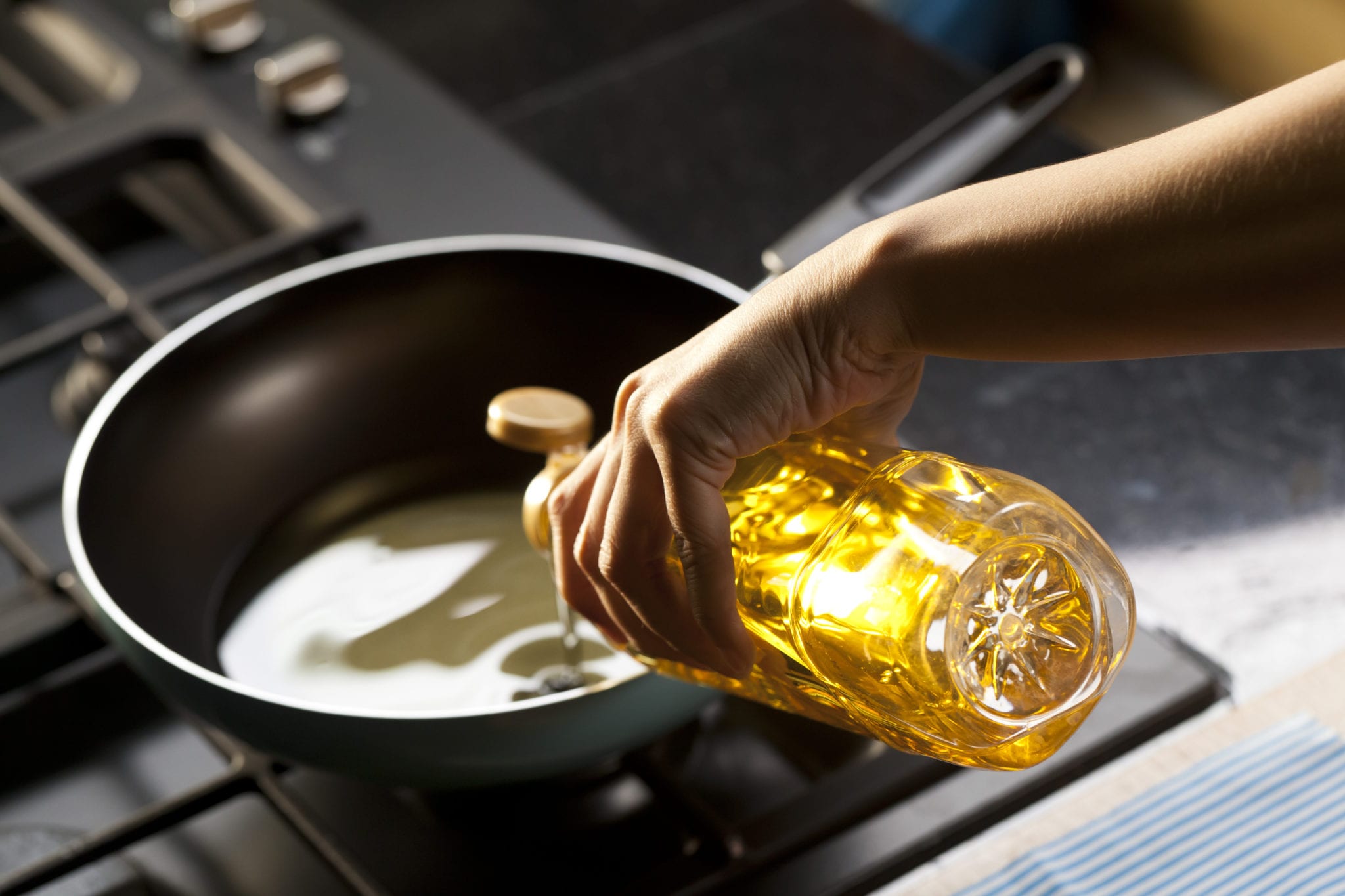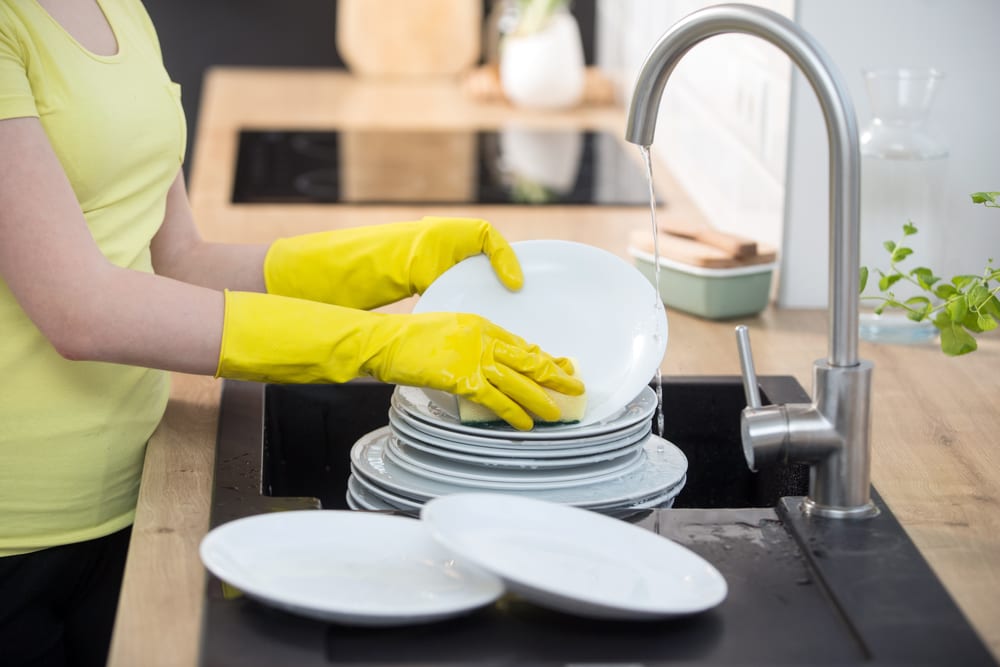
Dealing with a clogged kitchen drain can be a hassle, especially when it springs out of nowhere when you are trying to prepare a meal or, worse, preparing for guests to arrive. Unfortunately, drain clogs are common because people continuously dispose of cooking oil by dumping it down the kitchen drain. This includes rinsing oil and grease from pots and pans.
Rinsing drains with hot water and grease-fighting dish detergent behind the oil won’t prevent clogs; the grease will simply jell further down the pipeline, causing the same clog but in a more difficult location. So, you may be wondering how to dispose of used cooking oil in your home. View our tips to prevent moderate to severe clogs in your kitchen.
Table of Contents
What to Do With Used Cooking Oil
While, it can be tempting when you’re rushing around in the kitchen to dispose your used cooking oil by pouring it down the sink, don’t do it! This is the worst way to dispose of it. Instead, allow the used cooking oil to cool down and turn solid. Once solidified, dump it into your trash. If you cannot wait for the cooking oil to solidify, pour it into a disposable container and throw the container away in your trash.
While disposing of your used cooking oil in the trash is better than pouring it down your drain, it’s still not so great for the environment. Choosing to recycle your cooking oil helps reduce waste in landfills and allows the oil to be reused for other purposes. Through the JEA Used Cooking Oil Recycling Program, used cooking oil and grease is turned into biofuel and animal food.
Depending where you live in the Jacksonville, you may be near one or several public drop-off locations that allow you to properly dispose used cooking oil. Numerous fire stations are equipped to collect your used cooking oils and grease and can be located on a map provided by JEA. Some developments and apartment communities may also have their own private collection point for cooking oil and grease.
Read More: How Big Does My Furnace Need to Be?
 Fats, Oils, & Grease Are the Leading Cause of Drain Clogs
Fats, Oils, & Grease Are the Leading Cause of Drain Clogs
It is not just your home you need to worry about when disposing of cooking oil. Disposing of used cooking oil and fats down the drain can affect other homes, businesses, and your environment with sewage backups and overflowing sewers. Pouring cooking oil down your drain contributes to sewer clogs from fats, oils and grease. Over time, these substances can build-up and eventually block your home’s sewer lines. If you continuously dispose of your cooking oil improperly, you will eventually have to deal with a widespread blockage in your home’s sewer lines and very costly repair bills.
In severe instances, blockages can be caused in local connecting sewer lines from the combined ingredients accumulated from other homes and businesses in your area. Sewage backups can occur in homes and businesses throughout your area because the capacity to collect wastewater is reduced. Sewers can also overflow onto roadways and properties that will eventually work its way into local waterways and cause contamination. The repairs and cleanup of these backups eventually get passed back to consumers by way of higher water and sewer bills.
Read More: Should I Buy a Heat Pump or a Gas Furnace?
Trustworthy Drain & Sewer Cleaning Services
Clogs can happen, even with taking steps to dispose of your used cooking oil properly. And when they do, Fenwick Home Services is ready to assist you anytime, 24/7. From drain cleaning, repiping, sump pump repair, to water heater installation, our team is able to pinpoint and resolve your emergency plumbing issue. Call us at 904-217-5694 or contact us online for your emergency or general plumbing needs.

